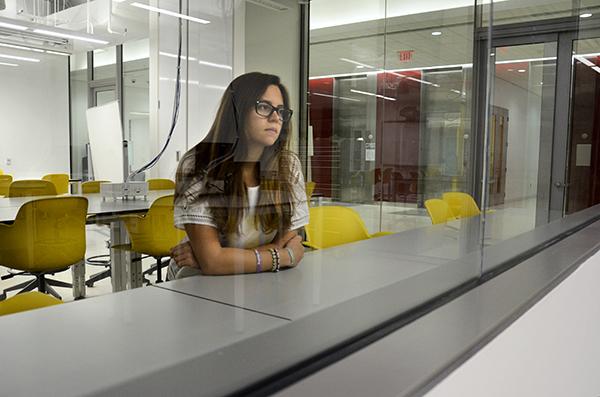When senior Hannah Moskowitz tried to find an alternative to the required animal dissection in an introductory biology course, she said she was rebuffed by the department.
“I reached out to two professors and was told that there was no option for change,” Moskowitz said.
Moskowitz, now the president of GW Animal Advocates, started a petition on Sept. 16 calling for GW to offer an opt-out policy for non-biology and pre-medical students who have strong beliefs against dissection. As of this week, the petition has amassed more than 25,500 supporters from across the globe.
Animal dissection is included in one of the nine labs in Introductory Biology, a requirement for several non-biology majors within the Columbian College of Arts and Sciences. Faculty said dissection is an important part of the curriculum because it gives students valuable hands-on experience and helps them learn concepts they’d otherwise only read about.
Moskowitz said her petition is receiving worldwide recognition mainly thanks to a sympathetic staff member at Care2Petition, the platform she used, who increased awareness for Moskowitz’s cause by spreading the word to animal rights supporters.
“If you look at the list of supporters, they’re from all around the world, which is incredible,” Moskowitz said.
Moskowitz was able to take a conservation biology course to fulfill her dissection requirement two years ago, and she said she hopes the petition will pave the way for others who shared her views on dissection.
In the petition, Moskowitz is asking for a “virtual lab” alternative to animal dissections, a plan supported by the national Animal Welfare Institute.
“AWI encourages the use of cost-effective, reusable dissection alternatives which sacrifice neither animals nor quality education,” Cathy Liss, the president of Animal Welfare Institute, said in an email.
Virtual labs also have the added bonus of reducing staff and equipment costs, according to The Los Angeles Times.
Susanna Israelsson, a sophomore and member of GW Animal Advocates who signed the petition, said the dissection lab was the reason she chose not to take Introductory Biology.
“I’m a really big animal lover, and I don’t think we should do dissections if it’s not absolutely necessary,” Israelsson said.
But some faculty in the biology department say hands-on experience is a necessary component of dissection.
“Biology is about getting your hands messy,” David Morris, an assistant professor of biology, said. “You really need to be working with something substantial.”
Three professors cited students’ option to take “Understanding Organisms through Service Learning 1008,” a service-learning course that does not have a mandatory dissection lab but fulfills the biology requirement.
Tara Scully, a teaching assistant professor of biology who teaches the course, said in an email her course is “very comparable” to introductory courses for biology majors.
She added that “the service learning aims are not the same as the traditional lecture [or] lab.”








